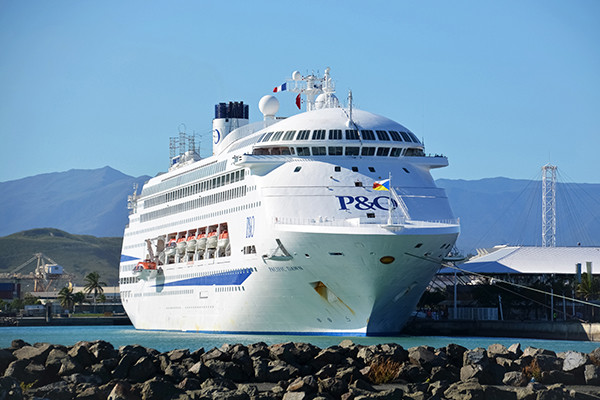The mass dismissal of 800 UK staff has received widespread attention from the media and has garnered criticism from many who claim that the actions taken by the Company were callous, shameful, and potentially even illegal.
P&O Ferries made the dismissal announcement to their UK staff on the 17th of March 2022 via a video call.
Staff were told that they would be made redundant with immediate effect, but they would be provided with an enhanced compensation package.
However, they’d only receive the enhanced compensation package if they signed a settlement agreement beforehand.
Following the dismissals, P&O confirmed that they intended to replace the redundant employees with cheaper agency staff, many of whom were already on board to take over from the previous employees.
Some of the redundant employees were even threatened with being removed from the ship in handcuffs.
Many have expressed shock and outrage at the actions taken, sharing concerns not only at the impact this would have had on the now redundant employees, but also the uncertainty likely felt by the remaining employees.
Unions including the National Union of Rail, Maritime and Transport Workers (RMT) and Nautilus International have been calling for action on behalf of the redundant workers.
What are the legal implications?
Beyond the clear ethical issues raised in this case, many have also cited legal problems with the actions taken by P&O Ferries, some of which are being examined by the government.
Employment law sets out specific processes in anticipation of wide-scale redundancy.
For redundancies that apply to over 100 members of staff within a period of 90 days, employers are obligated to conduct collective consultations with staff and relevant unions and representatives to work out possible alternatives and to provide a minimum of 45 days’ notice of the potential redundancy prior to making the announcement.
Failure to do this means the Company is liable to claims of breach of the statutory collective consultation obligations.
P&O would also have been required to complete an HR1 form to notify the government in advance of the potential redundancies.
The HR1 form is intended to identify and support employees facing redundancy, and failing to submit this form within the appropriate timeframe would be considered a criminal offence.
The Company, and its individual directors, could therefore be risking potential prosecution and fines for neglecting to follow the proper process.
Furthermore, dismissing 800 employees outright, without any notice period, would leave the company in a vulnerable position to a number of claims.
The lack of a contractual notice period would be a potential case for wrongful dismissal, combined with the potential for further claims of unfair dismissal from any employees with over two years’ service.
These employees would also be expected to receive a statutory redundancy payment following the redundancy.
Why did this happen?
Given the numerous consequences and costs that P&O may now face as a result of their mass dismissal, it is understandable for us to question why they would have even considered doing this in the first place.
However, employment lawyers have cited a potential loophole in the Maritime Labour Convention and related regulations that could apply to employees if they are considered seafarers.
Based on their contracts, where the P&O vessels are ‘flagged’, and their connection to the UK, P&O may not be required to comply with the normal obligations and employment laws.
Although this may be the case, the local laws of countries where the ships have been registered would still apply, and therefore would still put P&O in a risky position.
Nevertheless, the employees could still be covered under UK employment law.
As the crew members appear to work out of Dover or Hull, they are therefore potentially covered under most UK regulations relating to dismissals.
P&O are therefore still liable for claims of unfair dismissal and breach of employment law and regulations in the UK.
Additionally, there are concerns about the new agency workers, with wages falling well below the UK National Minimum Wage, with many on less than £6 an hour.
Again, this is an issue made even more complicated by the fact that the UK regulations on minimum wage may not apply once the ship has reached international waters.
However, it is still relevant to those at British ports.
What should be learnt from this?
Whilst the settlement agreements might dissuade some of the employees from seeking claims, P&O are still in breach of various legalisation and are at risk of facing criminal charges, especially as the UK government have said they’ll be looking into P&O’s actions closely.
Furthermore, their reputation will definitely have suffered.
Not only will there be a lack of trust and morale within the workforce, but many potential customers may now be looking elsewhere for their next holiday getaway.
In the meantime, it is clear that the UK government intends to re-assess and bring in further measures to avoid a situation like this re-occurring.
First on the list seems to be ensuring that these potential loopholes, such as those in the Maritime Labour Convention, are addressed.
Stay in the know
We’ll keep you up to date with all the latest in employment law and HR. You can unsubscribe at any time.


Recent Comments